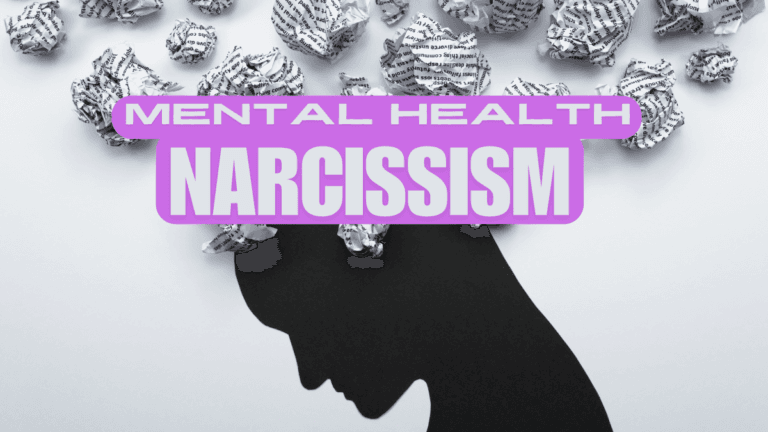5 Negative Effects of Narcissistic Parents: Breaking the Cycle of Childhood Trauma
Effects of Narcissistic Parents
Growing up with narcissistic parents can have long-lasting negative effects on a child’s development, self-esteem, and mental health. These parents often prioritize their own needs over those of their children, leading to emotional neglect, manipulation, and toxic family dynamics. Understanding the effects of narcissistic parenting is crucial for healing and breaking the cycle of trauma.
Related: Do Boundaries Really Work with Narcissists? Learn Effective Strategies
Related: Why Narcissists Struggle with Empathy: Understanding the Science Behind their Behavior
Related: Understanding Why Narcissists Create Chaos
Related: You Must Protect Yourself from Their Emotional Manipulation, Learn Strategies
Negative Effects of Narcissistic Parents on Children
| Effect | Description |
|---|---|
| Emotional Neglect | Children's emotional needs are ignored or dismissed, leading to feelings of worthlessness and self-doubt. |
| Low Self-Esteem | Narcissistic parents often belittle their children, resulting in long-term self-worth issues. |
| People-Pleasing Tendencies | Children grow up trying to meet others' needs at the expense of their own well-being. |
| Trust Issues | Instability and manipulation create difficulty trusting others in adulthood. |
| Toxic Relationship Patterns | Children of narcissists may repeat abusive or manipulative relationship dynamics as adults. |
1. Emotional Neglect and Invalidation
Children of narcissistic parents often experience emotional neglect and invalidation. Their feelings, needs, and achievements are frequently dismissed or overshadowed by the narcissistic parent’s constant focus on themselves. The parent may criticize or ignore the child’s emotions, leading to deep feelings of worthlessness and self-doubt. These children grow up feeling that their emotions are not valid or important, making it difficult for them to trust their own feelings or express them openly.
Impact:
This emotional neglect can lead to anxiety, depression, and low self-esteem in adulthood. Individuals may struggle with emotional intimacy in relationships, often doubting their feelings and seeking external validation to feel worthy.
Solution:
Therapy can help individuals recognize and validate their own emotions. Learning to trust and express feelings in safe, supportive environments helps counter the effects of emotional neglect.
2. Low Self-Esteem and Identity Issues
Narcissistic parents tend to undermine their children’s self-esteem by focusing on the child’s flaws and failures rather than their strengths and achievements. They may belittle, criticize, or compare their child unfavorably to others, causing the child to feel inadequate. As a result, children of narcissistic parents often struggle with self-worth and identity issues, never feeling good enough or truly seen for who they are.
Impact:
Low self-esteem can lead to difficulties in relationships, career setbacks, and a constant need for approval. These individuals may also have an unclear sense of self, often living to please others or meet unrealistic standards set by their parents.
Solution:
Building self-esteem and a strong sense of identity takes time but is essential for healing. Journaling, affirmations, and self-compassion exercises can help individuals reconnect with their authentic selves and build confidence.
3. People-Pleasing Tendencies
Children raised by narcissistic parents often become people-pleasers. Because they were conditioned to prioritize their parent’s needs and avoid conflict, they may grow up with a deep fear of disappointing others. This leads to overextending themselves to meet the needs of others, often at the expense of their own well-being.
Impact:
People-pleasing can result in burnout, resentment, and difficulty setting healthy boundaries in personal and professional relationships. It can also make individuals more susceptible to being taken advantage of by others, including future narcissists.
Solution:
Learning to set healthy boundaries is key to overcoming people-pleasing tendencies. Practicing assertiveness, saying “no” when necessary, and prioritizing self-care can help individuals reclaim their autonomy and stop seeking approval from others.
4. Difficulty Trusting Others
Narcissistic parents often create an environment of unpredictability and emotional instability, making it hard for children to trust others. These parents may manipulate or gaslight their children, leading them to doubt their perceptions of reality. As a result, children of narcissists may struggle with trust issues in adulthood, fearing betrayal or manipulation in their relationships.
Impact:
Difficulty trusting others can hinder the development of deep, meaningful connections. Individuals may become overly guarded or detached, pushing others away out of fear of being hurt or deceived.
Solution:
Building trust in healthy relationships requires vulnerability and communication. Therapy and supportive friendships can help individuals gradually open up and build trust with others.
5. Repeated Toxic Relationships
Many children of narcissistic parents unconsciously recreate the toxic dynamics they experienced growing up. They may be drawn to partners or friends who exhibit narcissistic traits, repeating cycles of emotional abuse, manipulation, and control. This pattern is often driven by unresolved trauma and a subconscious desire to “fix” or gain approval from similar figures.
Impact:
Repeated toxic relationships reinforce feelings of inadequacy, fear, and emotional instability. Individuals may feel trapped in a cycle of abusive or manipulative relationships, unable to break free.
Solution:
Breaking the cycle of toxic relationships requires self-awareness and boundary-setting. Recognizing red flags in potential partners or friends, and seeking healthy, reciprocal relationships, helps individuals avoid repeating old patterns.
Effects of Narcissistic Parents Effects of Narcissistic Parents Effects of Narcissistic Parents Effects of Narcissistic Parents Effects of Narcissistic Parents Effects of Narcissistic Parents Effects of Narcissistic Parents Effects of Narcissistic Parents








